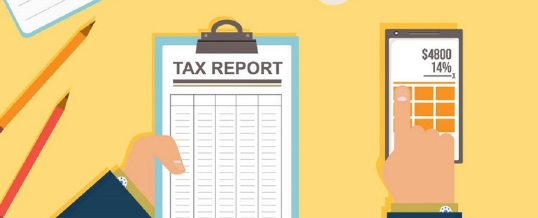
As governments and tax authorities crack down on the taxation of assets held in cryptocurrency, even more and more people are turning to offshore banking. Sadly, governments and tax agencies are also becoming more and more strict with offshore banking with more regulations than ever. This has left many people to wonder if it’s still possible to find tax loopholes anywhere. Is it still possible to not report offshore bank accounts in some circumstances?
The answer is yes, but it’s not a simple yes. First, we must discuss the details of something called AEOI.
AEOI, Revisited
AEOI, or Automatic Exchange Of Information, was designed to allow countries to exchange information between themselves without having to require it. It allows for the free flow of information about bank accounts. It was designed to reduce tax evasion around the world with heightened transparency. Mostly, AEOI was created to stop tax evasion in offshore banking. AEOI has taken away many of the go-to loopholes that people have used for years in terms of offshore banking. For instance, it was once extremely common to use Switzerland as an offshore jurisdiction if you wanted your assets kept a secret. Now, due to the Swiss acceptance of AEOI, that is a thing of the past. Any assets you hold in Switzerland will be reported to your home country.
This is the same with many of the most heard of offshore jurisdictions. AEOI has completely changed the offshore banking landscape. While you are still free to use offshore bank accounts, you can almost bet that you’ll have to pay taxes at home for the assets you have held internationally.
Not Reporting your Account: Yes, it's Still Possible
There are a few ways that you can still get around AEOI, however. It’s important to keep in mind that jurisdictions are always changing, and regulations are continuously evolving, as well. No matter what you do when you are involved in offshore banking, you should always remain abreast of the latest changes in regulation to ensure that you are never held liable for tax evasion.
With that in mind, one way to get around AEOI is to simply avoid AEOI compliant jurisdictions. Yes, they still exist, although they are few and far in between. Be aware, however, that many of the non-AEOI offshore jurisdictions are not truly desirable for banking, and many are considered prohibited. The key is to find a reputable offshore jurisdiction that isn’t compliant with AEOI. One such offshore jurisdiction is Puerto Rico. Of all the stable non-AEOI offshore jurisdictions, the United States is actually perhaps the strongest.
If this has led you to consider setting up an offshore company in one of these jurisdictions that doesn’t participate in AEOI, that’s a great idea, but there is another option that holds potential. You could possibly set up a company in an AEOI jurisdiction that offers reporting exemptions for companies. One such jurisdiction is Cyprus. There, business trading account information isn’t shared with the account holder’s home government. If you can find a stable jurisdiction such as Cyprus that offers AEOI reporting exemptions on companies, this could be a viable option for you.
You could always move to an offshore jurisdiction to eliminate the reporting requirements of your home country, although that comes with several sacrifices. Relocating internationally is possible and practical in some situations, however, and if it works for you, then you could find yourself on the better end of the tax spectrum.
Another option for getting around AEOI is to consider its prime principle. The regulation is based on assets. If there are no assets, then there is nothing to report. Setting up a trust or a foundation, for example, could take care of AEOI reporting requirements by simply making your assets non applicable to the rules. Creating a trust or another entity can eliminate any assets that would be required to report, so this could be a win-win for your situation.
Final Thoughts
Of course, each circumstance is different. In order to determine what’s best for you, you’ve got to consider the pros and cons of your situation.
At the end of the day, you might even determine that the best thing to do is nothing at all. Sometimes, facing the reporting requirements is the easiest and best thing to do. In other circumstances, however, it could be completely feasible to find a non-AEOI jurisdiction where you can place your assets.
JAN
2020

Table of Contents